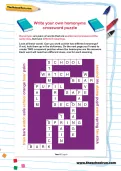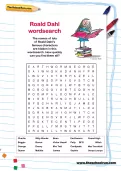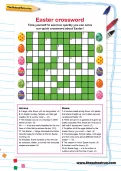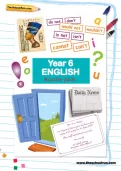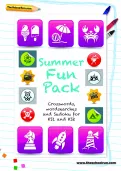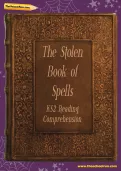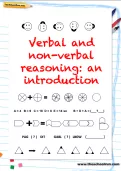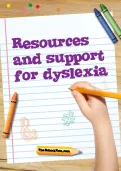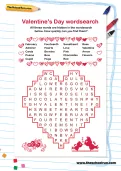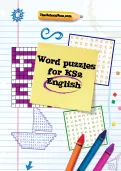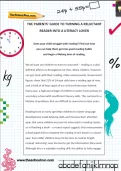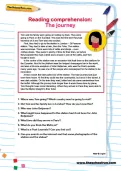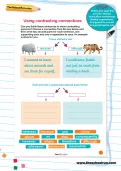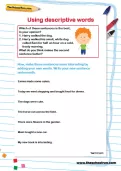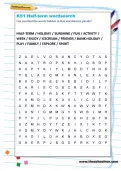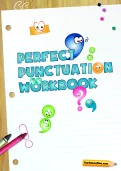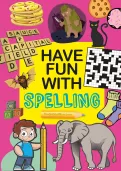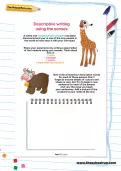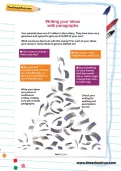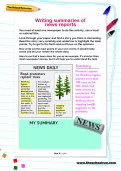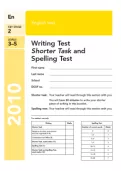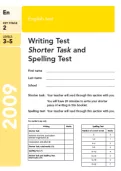Handwriting, spelling and punctuation – that's what your child will be practising with the Year 6 English booster pack, but there's no drilling involved when there are play scripts to be written (and performed?), arguments to be composed, biographies to write and newspaper articles to type up. Your child might actually ask to put pen to paper!
or
Register to add to your saved resources
Already a subscriber? to view this content.
Keep boredom at bay with some brilliant puzzles for KS1 and KS2! Your child will need to use all their spelling and numeracy skills to solve wordsearches, crosswords, Sudoku and Wordoku – and there are a few extra challenges to keep them busy, too!
or
Register to add to your saved resources
Already a subscriber? to view this content.
Reading comprehension doesn't have to be dull! The Stolen Book of Spells offers KS2 students an engaging story, challenging questions and a riddle to solve – they'll be so immersed in the narrative they won't even realise they're working on their literacy. Answers are provided so you can mark your child's work and help them improve their ability to comprehend, decode and interpret what they read.
or
Register to add to your saved resources
Already a subscriber? to view this content.
If your child is in the last years of primary school you might be thinking about selection tests like the Eleven Plus and how to prepare for them. To help you decide on your approach we've put together an introduction to verbal and non-verbal reasoning, with expert tips, advice and practice questions and answers for you and your child.
or
Register to add to your saved resources
Already a subscriber? to view this content.
Eggs, buns, flowers and bunnies - and chocolate, of course! Prepare for the school holidays by testing your knowledge of all things Easter-related with this quick crossword.
or
Register to add to your saved resources
What is dyslexia? Who does it affect and what are the key signs a child might be dyslexic? The Resources and support for dyslexia pack offers a complete overview, from how dyslexia is identified to at-home support strategies, expert tips to encourage a love of reading and links to further resources and advice.
or
Register to add to your saved resources
Already a subscriber? to view this content.
Love is in the air... and in this wordsearch! Have fun finding the words in this Valentine's-themed puzzle for KS1 and KS2 children.
or
Register to add to your saved resources
Are you and your child tired of the same old English revision and practice sessions? Try something completely new and give them these fun English word puzzles instead! They'll review everything from connectives to apostrophes, using what they learn in class to solve codes, crosswords and wordsearches.
or
Register to add to your saved resources
Already a subscriber? to view this content.
Why are some children reluctant to read, and what can you do to help them fall in love with books? From exploring non-fiction to making reading a feel-good pleasure, we explain how you can turn a reluctant reader into a bookworm. Happy reading!
or
Register to add to your saved resources
Already a subscriber? to view this content.
Read this short passage about taking a train journey to France, then answer questions based on the text.
or
Register to add to your saved resources
Already a subscriber? to view this content.
Can you finish these sentences to show contrasting opinions? Choose a connective from the box below and then write two second parts for each sentence, one supporting zoos and one in opposition to zoos. An example is done for you.
or
Register to add to your saved resources
In this worksheet, your child can practise writing sentences with descriptive words, and understand why they are more interesting to read than sentences without descriptive words.
or
Register to add to your saved resources
Already a subscriber? to view this content.
Use this wordsearch during half-term to help your child with vocabulary and spelling while recognising words that are all about having fun!
or
Register to add to your saved resources
Full stops, commas, semi colons, apostrophes… Whatever aspect of punctuation your child is grappling with, we’ve come up with a bumper pack of 60 activities to help them practise, as well as a parent's refresher guide to each punctuation mark and how it's used.
or
Register to add to your saved resources
Already a subscriber? to view this content.
Does your child’s spelling really let their writing down? Have fun with spelling offers you practical and effective strategies to help support your child’s learning at home, based on a real understanding of how spelling is taught and why it’s tricky to master. The bad news? Your child will be beating you at Scrabble before you know it!
or
Register to add to your saved resources
Already a subscriber? to view this content.
A weird and wonderful new creature has been discovered and you’re one of the only people in the world to have seen it with your own eyes! Share your experience by writing a description of the creature using your senses.
or
Register to add to your saved resources
Already a subscriber? to view this content.
This worksheet requires children to imagine that they have been given a large sum of money and then use paragraphs to write about what they would do with it.
or
Register to add to your saved resources
Already a subscriber? to view this content.
This worksheet encourages your child to read through news reports, picking out the important facts in order to summarise them.
or
Register to add to your saved resources
Download and print this complete 2010 English SATs papers pack and help your child to prepare for their Y6 SATs.
or
Register to add to your saved resources
Download and print this complete set of KS2 English SATs papers from 2009 and help your child revise and prepare for their Year 6 tests.
or
Register to add to your saved resources
